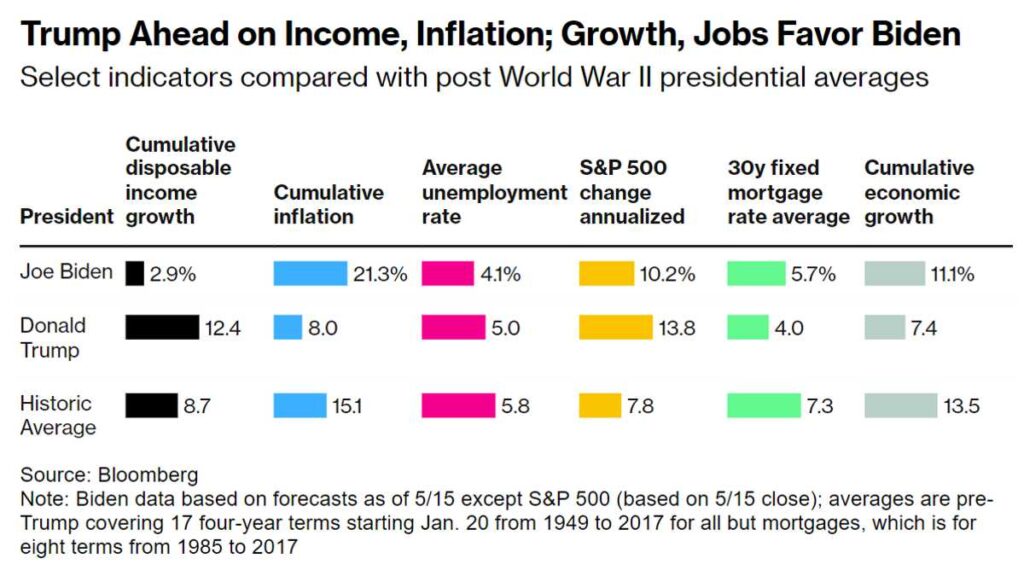Biden has delivered the strongest job market in decades but inflation slowed gains in living standards.
Americans give Donald Trump the edge over Joe Biden on the economy in poll after poll.
That’s even as the Biden years have been the best time to find work since the 1960s, and the US has bounced back from the pandemic with stronger growth than international peers such as the EU, UK and Japan and stronger growth overall than under President Trump.
Instead, voters this year are focused on the steep jump in prices from the post-pandemic surge in inflation.

In the April Bloomberg/Morning Consult swing-state poll, respondents said by 51% to 32% they were doing better financially under Trump than Biden. Out of 15 economic issues, the cost of everyday goods was far and away the top concern of registered voters in the poll.
Covid, of course, powerfully shaped outcomes under both administrations. Trump took office in the midst of a well-established economic expansion, then hit a global pandemic. Biden had to deal with the aftermath.
Economic data show the kitchen-table realities behind Americans’ judgment on the two presidents’ performance. The headline numbers don’t capture how income gains were distributed. Nor do they forecast the long-term impact of either president’s policies.
Biden-Harris campaign spokesman James Singer said the president “is leading a great American comeback out of the mess of failure Donald Trump left behind.” He said under Biden the country outperformed a prediction by Bloomberg Economics — and many other financial market forecasters — that Federal Reserve interest-rate increases would trigger a recession. He called Bloomberg’s selection of indicators “flawed,” pointing instead to 15 million new jobs created since Biden took office.
The Trump campaign argued job losses during the pandemic should be discounted. Spokeswoman Karoline Leavitt said Trump, if re-elected, would “reimplement his America First, pro-growth, pro-job agenda and uplift all Americans.”
Voters’ experience of the economy begins with their spending power.
By Mark Niquette, Phil Kuntz and Stuart Paul








